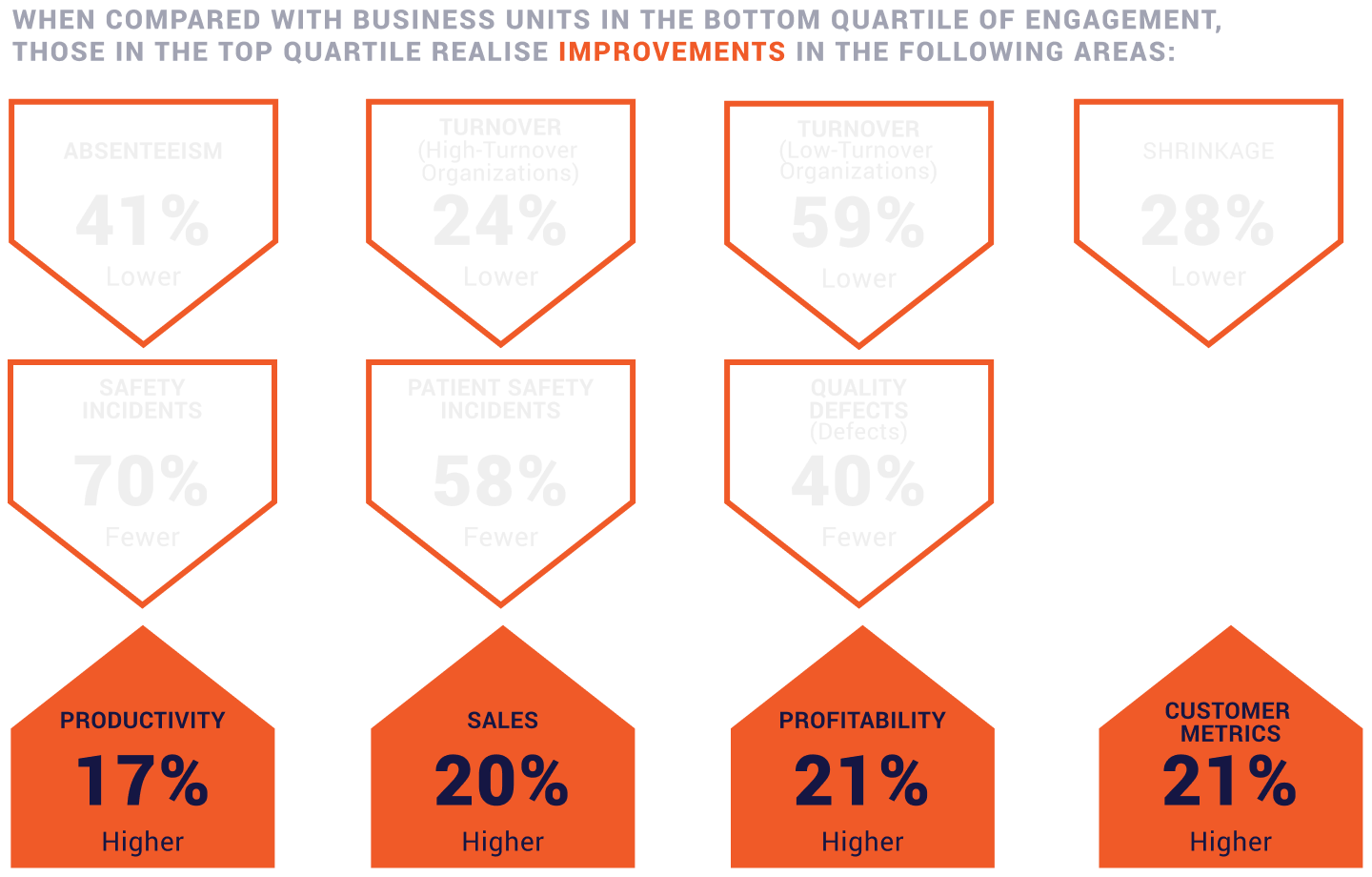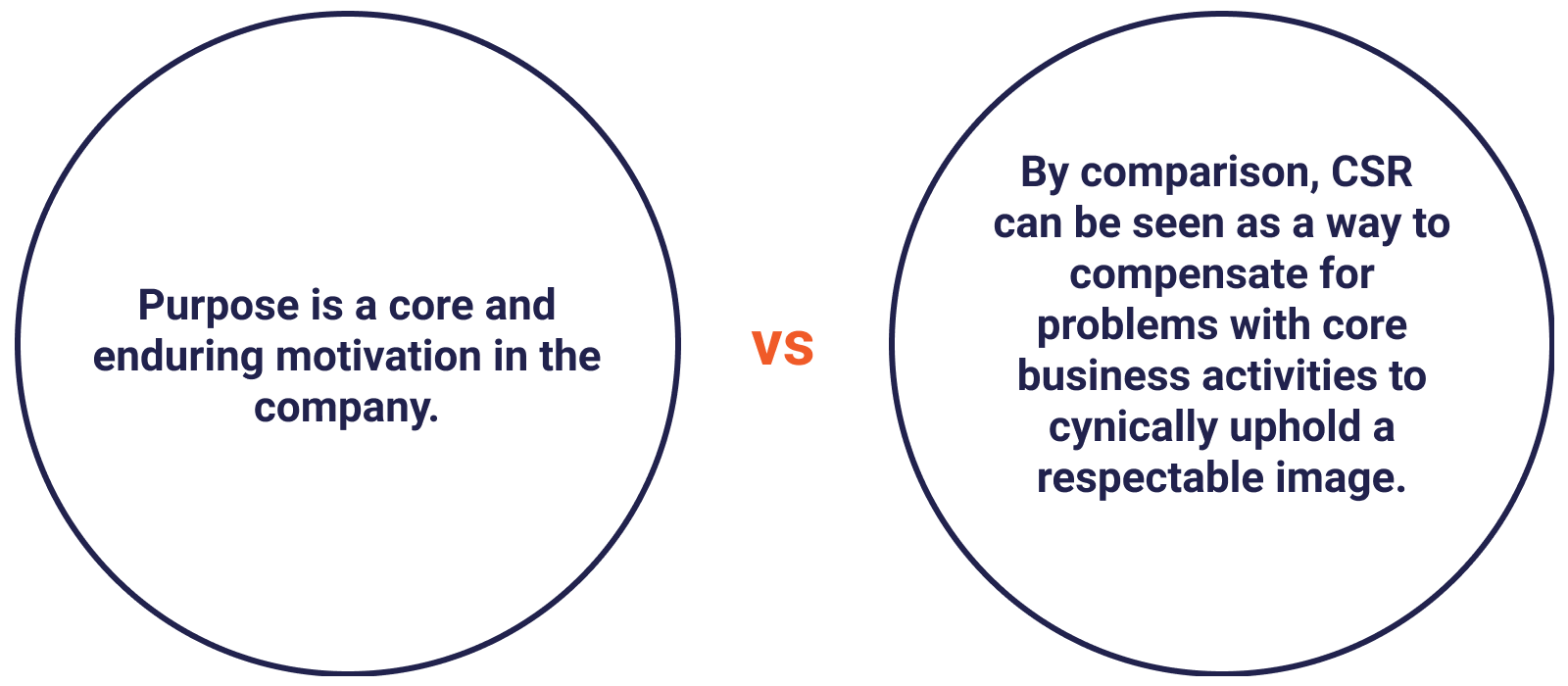
Why Purpose Matters
Purpose Matters for Customers
Edelman’s Earned Brand Study showed that Belief-Driven Buyers now comprise the majority of consumers in every market, age group, and income level.
Purpose and reputation are intrinsically linked, and elements of purpose account for 13% of an organisation’s reputation. When it comes to reputation, people prioritise organisations that:
are responsible 86%
are caring 85%
advocate for issues 81%
protect the environment 79%
Given similar price and quality, nearly 9 out of 10 people (89%) would switch brands to one that is associated with a good cause.
Purpose Matters for Employees
Employees with a “purpose orientation” report greater job fulfillment, are more engaged, perform better, and are much more likely to promote their employers to others.
Research confirms that organisations with a strong sense of purpose report employee engagement levels of 73% compared to just 23% in organisations without a sense of purpose.
Purpose Matters for Investors
Purpose Matters to your Performance
The pay-offs to purpose are many, measurable, and reinforcing.
They include superior innovation, investment, R&D, and recruitment and motivation of employees. They also include resilience to external shocks, lower cost of capital and less risk of exposure to regulatory fines. All of these, in turn, lead to stronger accounting and operational performance, and ultimately higher stock returns. An increasing body of evidence, spanning thousands of companies, across dozens of industries and countries, demonstrates a causal relationship between purpose and sustained competitive advantage rather than mere correlation.
Purpose-driven companies with humanistic values outperformed the S&P 500 by 14 times over 15 years.
Companies awarded the Gallup Great Workplace experienced 115% growth in earnings per share (EPS), while their competitors experienced 27% growth in EPS over the same time period. The best-practice organisations grew at a rate that was 4.3 times greater than that of their competitors.

ENGAGED EMPLOYEES LEAD TO BETTER BUSINESS OUTCOMES
Purpose Matters for Leaders
An EY survey reported that 90% of global executives said their company understands the importance of purpose but only 46% said it informs their strategic and operational decision-making.

Purpose Matters for the Future
“Finally, as our environmental indicators show, today’s progress is coming at the expense of our children. A changing climate, massive declines in biodiversity, and the depletion of land and freshwater resources pose serious threats to humankind. They require an immediate and ambitious change in production and consumption patterns.”
What is Purpose?
A purpose statement is a long-term, forward-looking intention to accomplish aims that are both meaningful to the organisation and of value to the world beyond.

THE DIFFERENCE BETWEEN MISSION & PURPOSE
And Purpose is Not the Same as Corporate Social Responsibility
How Purpose Can Help Your Organisation
Being purpose-led is not just a nice thing to do. There is a strong business case for becoming a purpose-led organisation.
A clear and authentic purpose can help you to design strategies to navigate the increasingly volatile, uncertain, complex and ambiguous environment in which business operates today.
Right now organisations are utilising purpose to:
Maintain and increase legitimacy in business
Attract, motivate and retain talent
Drive strong stakeholder and customer relationships
Increase employee psychological well-being
Increase business performance in both the short and long term
Provide a clear context for daily decision making





